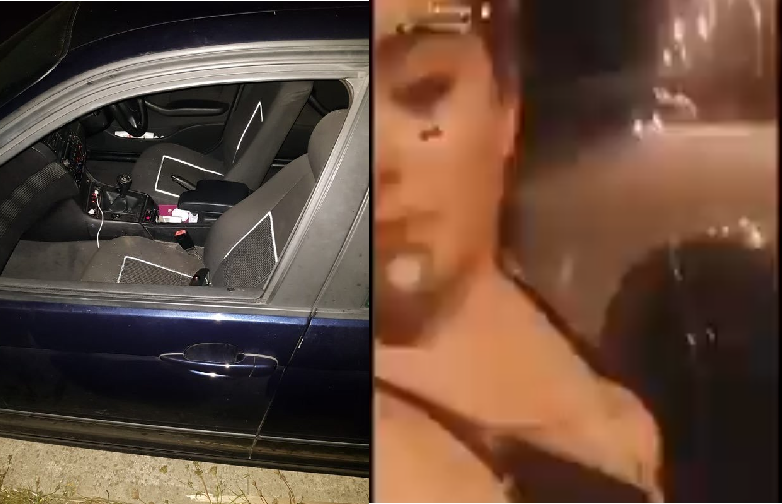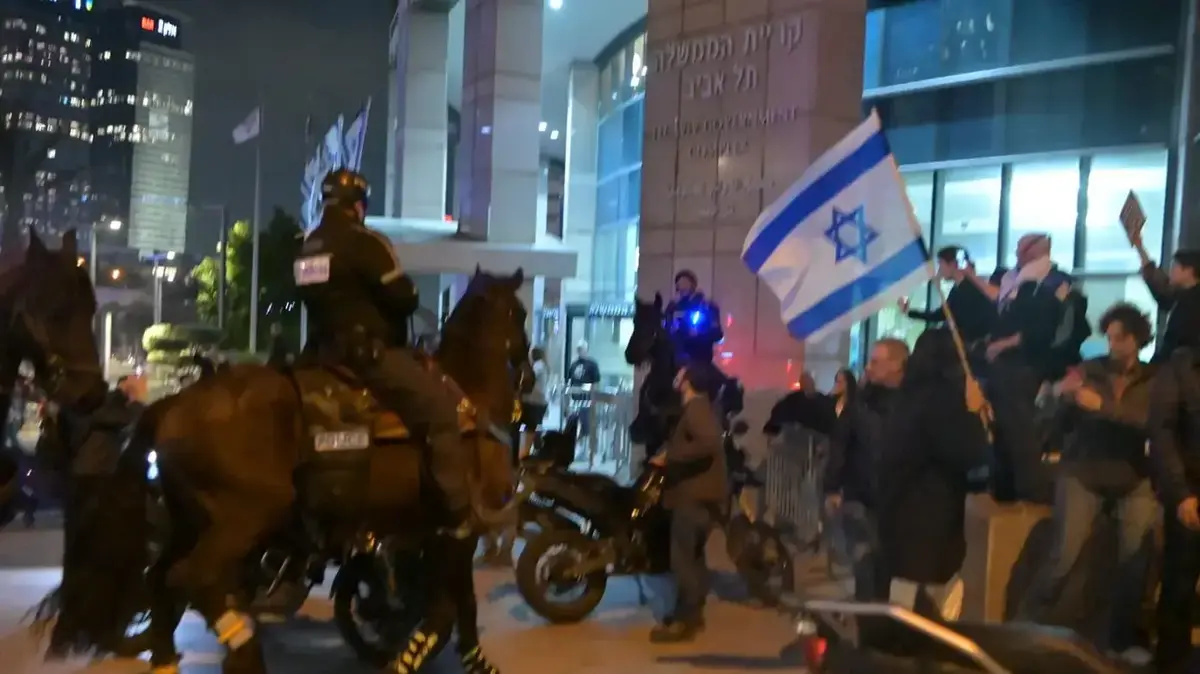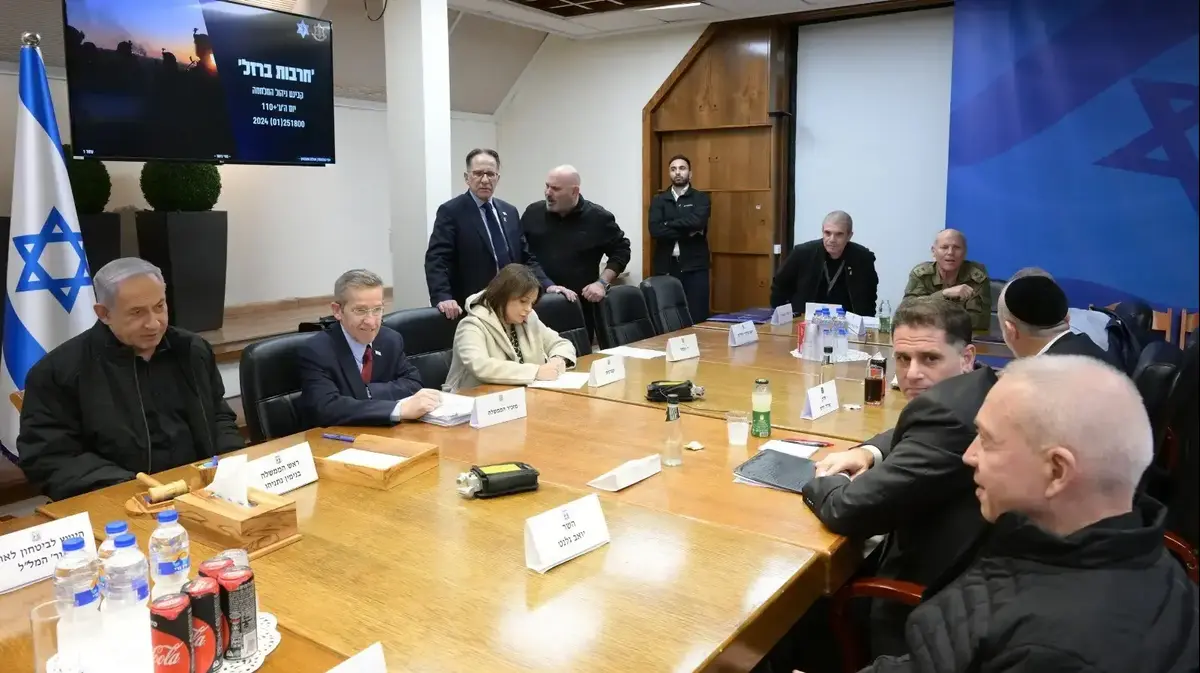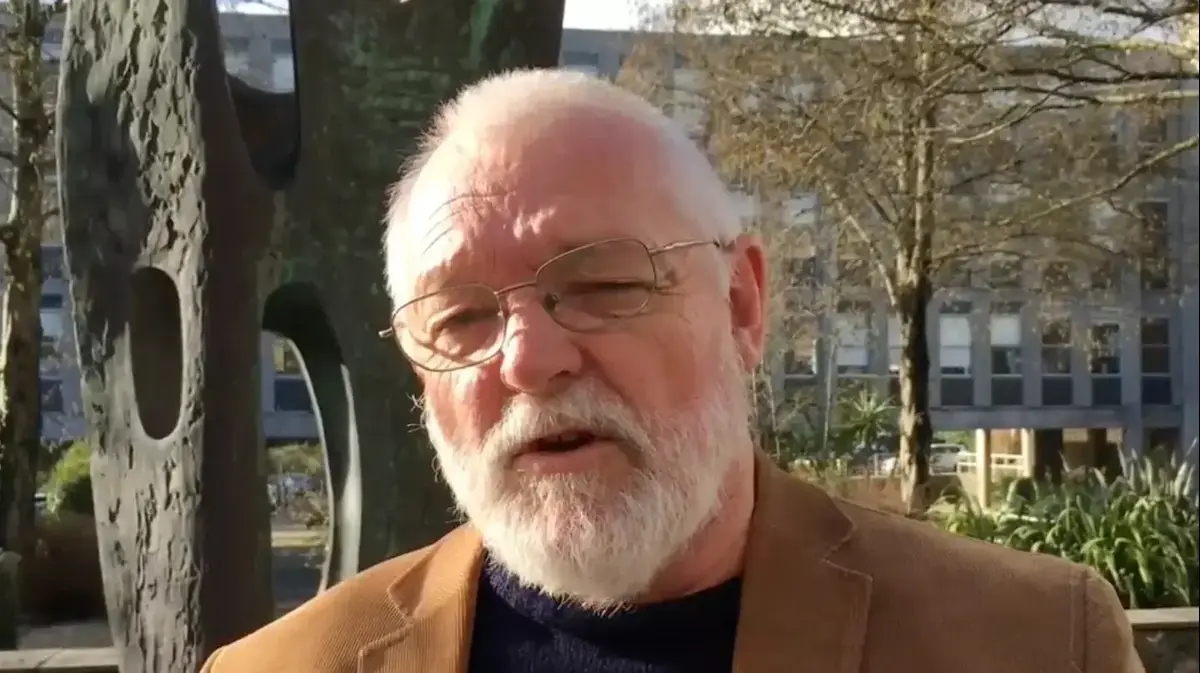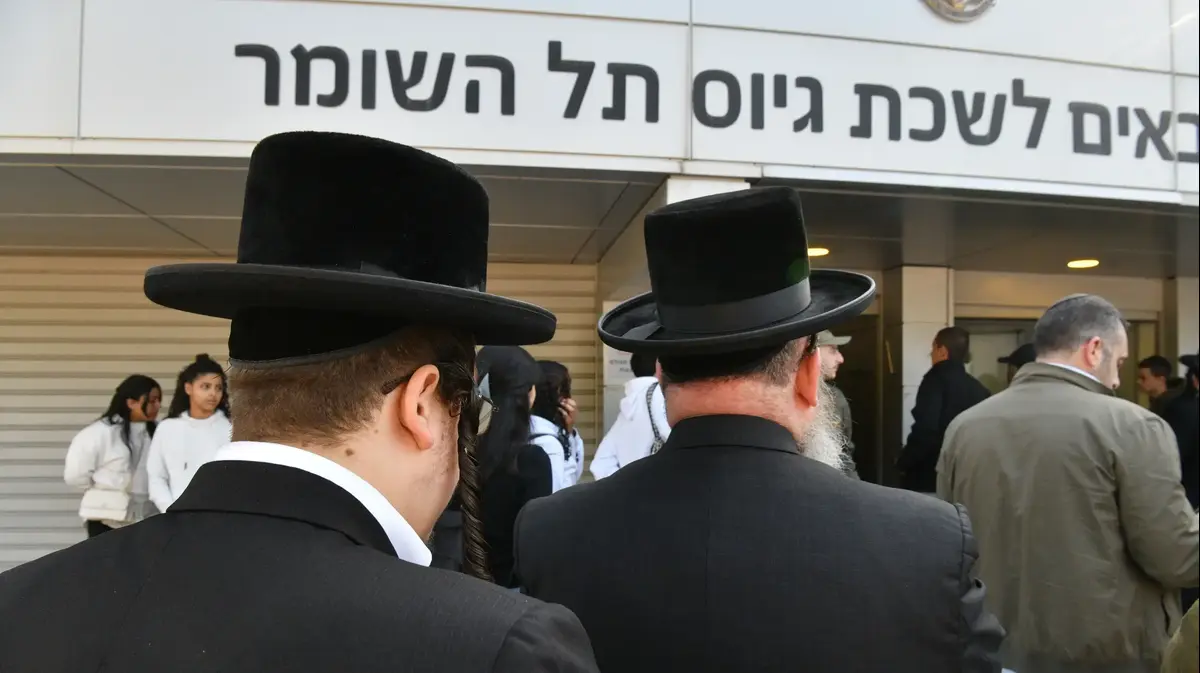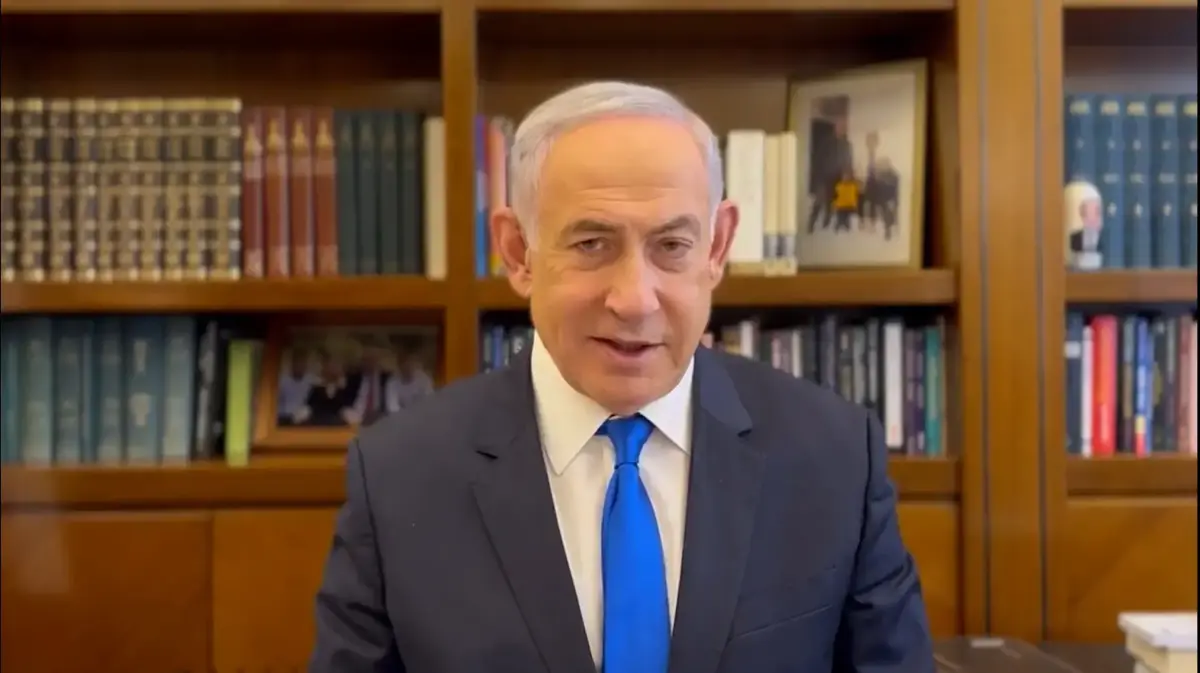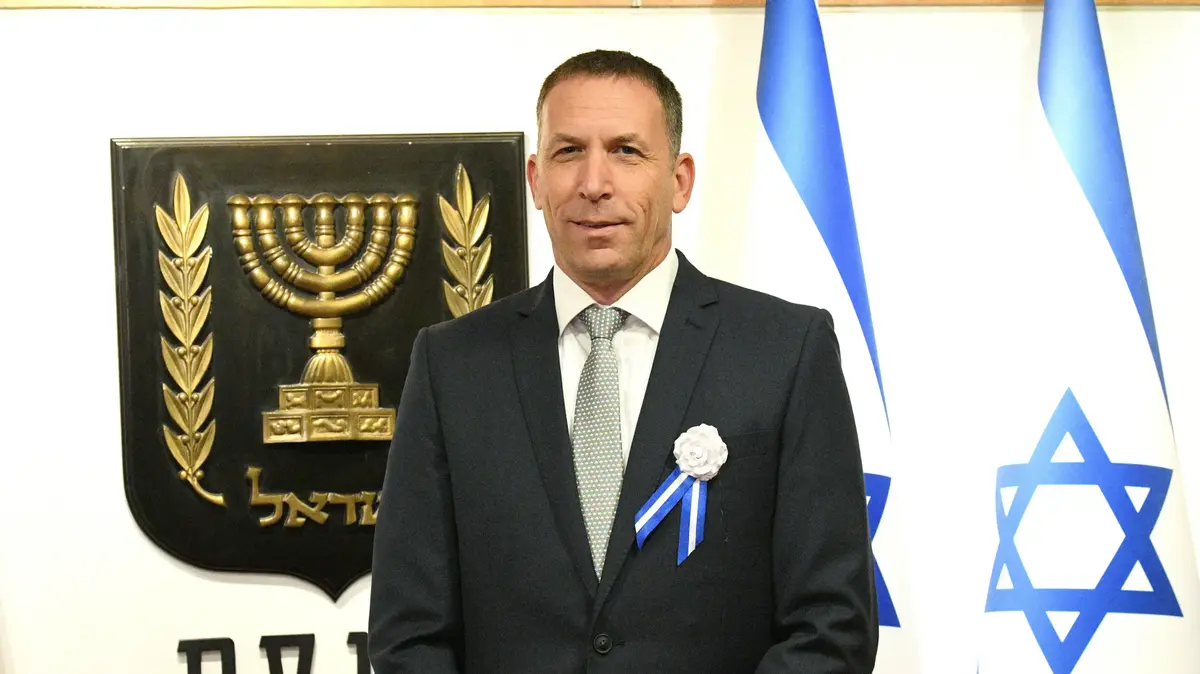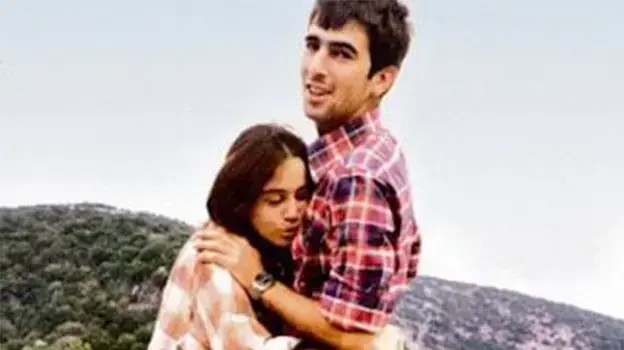news
Corona
What remains open and the outline for demonstrations and prayers: a guide to the general closure
Due to the increase in morbidity in Corona, the closure imposed for the holiday season will be tightened.
Subject to final approval in the Knesset, from 2:00 PM, additional industries in the economy will be shut down, and public transportation will be significantly reduced.
Which businesses will be defined as essential, how will the police be enforced and until when will the restrictions continue?
Tags
Corona virus
Clasp
General closure
prayers
Yom Kippur
Demonstrations
Lightning Ravid
Friday, September 25, 2020, 6:30 p.m.
Share on Facebook
Share on WhatsApp
Share on general
Share on general
Share on Twitter
Share on Email
0 comments
Ohana: The conduct under Mandelblit and Nitzan - in the way of ...
A girl documents herself leaning out of a passenger car window
Trump during a funeral for Judge Ruth Bader Ginsburg ...
Operation "Winning Responsibility": The police enforce regulations ...
Hundreds demonstrated in Bnei Brak against closure on holidays 20.09.20
Trump: "I do not have a scheduled meeting with House candidates ...
Pilot at Finland Airport: Survey dogs from sites ...
Departure of F-35 aircraft from the USA to Israel, July 2020 ...
Germany: Navalny released from hospital following improvement ...
In the video: Prime Minister Benjamin Netanyahu's statement (Photo: GPO)
The general closure across the country to halt the rise in corona morbidity will begin today (Friday), after days of discussions on tightening restrictions.
This is only a week since the softened closure on the public began.
Subject to the approval of regulations in the second and third readings in the Knesset, strict guidelines will come into force, according to which additional industries in the economy will be shut down, and demonstrations and prayers will be restricted.
What will remain open, will public transportation operate, and how will the police enforce the regulations?
A guide to the general closure.
More on Walla!
NEWS
Netanyahu: When we removed restrictions, there was laxity in the public;
The demonstrations - corona incubators
To the full article
More on Walla!
NEWS
Corona outbreak in BAD 1: Disciplinary action against the commanders involved
A grandson of the Rebbe of Gur was infected in Corona, 18 more grandchildren went into isolation
The swimming method that will change your life (and make you fit)
The general closure will continue until after Simchat Torah.
Enforcement of restrictions on Rosh Hashanah (Photo: Reuven Castro)
Restrictions on general closure:
From 14:00 until 11 October:
Exit limit of up to one kilometer from the place of residence
Prohibition on staying in another person's home
Prohibition on staying on the beaches, except for sports activities (including swimming)
Disabling all jobs, including markets, except for essential businesses
Gathering limit of up to 20 people in an open area and 10 in a closed building
Demonstrations and prayers for up to 20 participants in an open area, 1 km from the houses
Limiting the number of passengers in a vehicle to 3 people, not including people living together
Public transportation will operate on a limited basis
Closure of all sports except international games
How long will the general closure last?
The general closure across the country will begin today at 2 p.m.
It will last 16 days, until October 11, after Simchat Torah.
However, Prime Minister Benjamin Netanyahu warned on Tuesday that the closure could be extended for another two weeks, even if under less stringent restrictions.
The new restrictions have not yet been finally approved by the Knesset.
The plenum will convene later today to approve the changes to the Grand Corona Act, which replaces the emergency regulations, in the second and third readings.
What are the traffic restrictions?
During this period, an exit limit of up to one kilometer from the place of residence will apply.
Within the mileage limit, it will not be possible to stay in another person's home for a purpose that is not permitted (such as for the purpose of performing work or assisting a person with difficulty).
The number of passengers allowed in the vehicle is up to three people, excluding people living together, and one more passenger in each additional rear bench.
Also, a gathering of only up to 20 people will be allowed in open areas and up to ten in enclosed spaces.
Exit limit of up to one kilometer from the place of residence.
Tel Aviv, this month (Photo: Reuven Castro)
Which activities are exceeding the mileage limit?
You can go more than a kilometer from the place of residence for the purpose of reaching an employee or soldier to his place of work, obtaining medicines, food and essential products, assisting a person with difficulty or distress, medical, psychological and complementary medicine treatments (with only one patient).
It will also be allowed to go to the Knesset, for legal proceedings and blood donations, as well as for sports activities for individuals.
Also, more than exceed the 1,000-meter range for attending a funeral or alliance, baptizing women in a mikveh, praying on holy days, going out for vital care of an animal, transferring a minor between parents who do not live together, reaching an educational day where activities are allowed Welfare, departure of first-degree family members to commemorate the victims of the Yom Kippur War, and moving house.
What is allowed to do beyond the mileage limit:
The departure of soldiers and workers is essential for the workplace
Equipping with medicine and food
Assisting a person in distress or essential care of animals
Medical treatment (including complementary medicine) or psychological
Exit to welfare frameworks and social care
Going to the Knesset, to court or to a blood donation
Sports activities for individuals
Attendance at a funeral or covenant and baptism of women in a mikveh
Transferring a child to the custody of another parent
Travel to an educational setting whose activities are permitted
Visiting relatives of people with disabilities in welfare settings
Departure of first-degree family members to commemorate the victims of the Yom Kippur War
Moving
Under what conditions will it be possible to hold prayers?
As a rule, prayers will be held in groups of up to 20 people, in open spaces only, and within the 1,000-meter limit of homes.
However, on the High Holidays and on Yom Kippur, prayers were also permitted in synagogues in a special outline.
According to the outline, it will be possible to pray at a distance of one kilometer from the place of residence.
In open areas, prayer will be allowed in regular groups of up to 20 people, with distance between the groups and physical marking, as well as an empty seat between people who do not live together.
It will be possible to pray in the buildings on Yom Kippur.
Synagogue in Mea Shearim (Photo: Yonatan Zindel, Flash 90)
The outline for prayers on Yom Kippur:
You can pray within a mile of the residence
The open-air prayer will take place in capsules of up to 20 people
Duty to separate a chair between people who do not live together
Obligation to maintain distance between groups of worshipers
Prayer in the building will be allowed in groups of up to 25 people in the red area and 10 in the orange area
Restrictions on prayer in buildings during the holy days:
In the red area: 30 people for the first 2 entrances and 20 for each additional entrance
In the orange area: 50 people for each entrance, under a person's space limit for every 4 square meters
Also, on Yom Kippur it will be possible to pray in closed buildings, while sitting in complexes in regular groups of up to 25 people in the red area and ten in the orange area.
According to the guidelines, partitions should be placed between groups and keep a distance of two chairs between people who are not sitting together.
In addition, a sign should be placed with the number of worshipers allowed and the size of the place.
The limits of prayer in a closed structure on the High Holidays are also divided according to classification.
In the red area, 30 people will be allowed to pray for the first two entrances and another 20 for each additional entrance to the building.
In the orange area, 50 people will be allowed to pray for each entrance to the building, under the one-person space limit for every four square meters.
What was decided about the demonstrations?
During the general closure, demonstrations will be allowed in capsules of up to 20 people.
This is only in open areas and up to a kilometer from the place of residence.
And what about business activity?
During this period, there will be no work in the public sector and in the private sector, except for vital workers.
This restriction includes places of entertainment, markets, swimming pools, gyms, beauty salons and hairdressers.
It is also forbidden to receive an audience in the workplace.
Restaurants are allowed to operate only in the format of deliveries.
However, businesses that have been defined as essential will continue to operate.
Therefore, the opening of food stores, optics, pharmacies and hygiene products, home maintenance products, laundries, communication products and a laboratory for repairing communication products and computers will be allowed.
Markets will not be opened during the closure.
Mahane Yehuda Market, March (Photo: Shira Hershkop, TPS)
During the general closure, welfare and public services, banks and capital market institutions, workers in the field of agriculture and many institutions in the fields of welfare, immigration and absorption will also continue to operate.
This is in addition to various energy, high-tech and infrastructure plants.
What about exercise and the beaches?
During the closure period, the opening of gyms will be prohibited, but it will be possible to go out for sports activities of an individual or people living together without a distance limit, and not by car.
Also, places used for the training of professional athletes will be able to continue to operate.
In addition, it is forbidden to stay on the beaches, except for the purpose of performing sports activities.
One person or people living together will be allowed to swim, arriving from the place of residence and not by car.
How will the police enforce the regulations?
About 6,000 police officers and 1,000 soldiers will enforce the restrictions of the closure in the period until after Simchat Torah.
The police will focus their activities on enforcing restrictions on the distance from the houses and the transition between cities.
Also, the forces will enforce the constraints of the gathering and the activity of the businesses and gatherings.
As for the demonstrations, the head of the police operations department, Deputy Superintendent Yishai Shalem, said that there were no more protests whose purpose was to defy the law.
"'Demonstrations as if', like the ones at the beach, will be dealt with quickly and decisively. We will not be tolerant," he said.
7,00 Police and soldiers will enforce the restrictions.
Checkpoint at Beit Yanai Interchange, this month (Photo: Shlomi Gabay)
Regarding the prayers, the police plan to carry out information activities with the relevant authorities until the beginning of Yom Kippur.
Also, the forces are expected to deploy the roadblocks according to the hours of stress so that no significant traffic jams will form.
When it comes to cycling on Yom Kippur, the police will allow this activity because it is defined as sporty.
In addition, an entire deputy chief of staff said that the number of checkpoints on this day would be reduced, and instead they would be located near the settlements of the non-Jewish sector.
"We expect parents to take responsibility and prevent the gatherings on Yom Kippur under the house when the children ride bicycles," he added.
How will public transportation work?
The Ministry of Transportation has not yet presented an outline for public transportation activity during the tight closure period.
At present there are no clear guidelines or guidelines, not even for public transport operators.
It appears that bus activity will be limited to 25% occupancy, and the Israel Railways will reside.
The operator of the light rail in Jerusalem, CityPass, did not wait for instructions and published a schedule that includes the cessation and commencement of its activities on the eve of Yom Kippur.
The light rail is exempt from all travel restrictions during the corona period and is not subject to the capacity limit of passengers.
And what about Ben Gurion Airport?
Apparently, Ben Gurion Airport does not sit completely, and will continue its activities for cargo flights and exceptional passenger flights only. In addition, it is possible that passengers with Israeli citizenship will be able to enter the country.
Share on Facebook
Share on WhatsApp
Share on general
Share on general
Share on Twitter
Share on Email
0 comments

